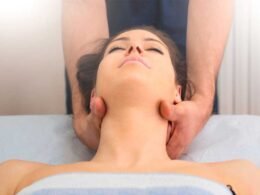While most people understand the damage alcohol can cause to the liver and brain, its impact on muscle health often goes unnoticed. Chronic alcohol use can lead to a condition called alcoholic myopathy, where muscle strength and function deteriorate. Addressing this damage begins with comprehensive addiction treatment, which tackles both physical and psychological aspects of alcohol use disorder.
How Alcohol Affects Muscle Tissue
Alcohol interferes with the way the body synthesizes protein, which is essential for muscle repair and growth. Long-term alcohol use can break down muscle fibers, reduce mass, and decrease endurance. This is why addiction treatment must include physical rehabilitation to restore muscle health and overall function.
Malnutrition and Muscle Wasting
Individuals struggling with alcohol use disorder often suffer from poor nutrition. Alcohol impairs nutrient absorption and suppresses appetite, leading to vitamin deficiencies that directly harm muscle tissue. Addiction treatment programs frequently incorporate nutritional counseling to combat this issue and support the rebuilding of muscle mass.
Inflammation and Muscle Damage
Excessive alcohol consumption triggers inflammation in the body, which can damage muscle cells over time. Inflammatory markers often remain elevated in those with alcohol use disorder. Through addiction treatment, patients receive medical care that addresses these internal imbalances while promoting physical recovery.
Physical Weakness and Daily Functioning
Muscle weakness caused by alcohol use can make even daily tasks challenging, from walking to lifting light objects. In addiction treatment, physical therapy and exercise routines are used not just to improve health but also to restore independence and improve quality of life.
Hormonal Disruption and Muscle Loss
Alcohol can disrupt hormone production, including testosterone and growth hormone, both vital for maintaining muscle mass. This hormonal imbalance accelerates muscle breakdown. Addiction treatment helps stabilize hormone levels through medical support and lifestyle changes, which aid in muscle recovery.
The Role of Exercise in Recovery
Structured physical activity is often a core part of addiction treatment. Resistance training and aerobic exercise help rebuild damaged muscle fibers and increase stamina. More importantly, regular exercise boosts mood and reduces cravings, reinforcing both physical and emotional recovery.
Preventing Long-Term Muscle Complications
Without intervention, muscle damage from alcohol can become permanent. Some individuals develop chronic pain or muscle cramps that persist for years. Early and sustained addiction treatment helps prevent these complications and supports long-term muscular and skeletal health.
Monitoring Progress with Medical Support
Effective addiction treatment involves regular health check-ups and monitoring. Muscle strength, weight, and mobility are tracked to ensure progress. Medical teams work closely with patients to adjust treatment plans and ensure the body is healing alongside the mind.
Recovery Is More Than Sobriety
True recovery goes beyond stopping alcohol use; it involves healing the whole body. Addiction treatment programs that include nutritional guidance, physical therapy, and exercise are essential for restoring muscle health. As individuals regain their strength, they also regain confidence and a renewed sense of purpose.
The connection between alcohol use disorder and muscle health is a critical but often overlooked aspect of recovery. With targeted addiction treatment, individuals can rebuild what alcohol has taken away: strength, endurance, and physical independence. Recovery isn’t just about quitting drinking; it’s about reclaiming the body and life you deserve.










